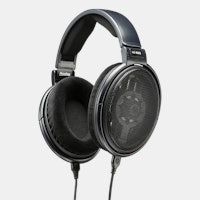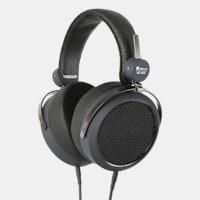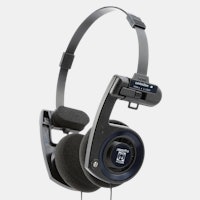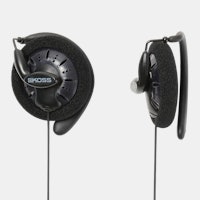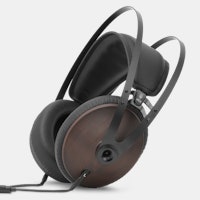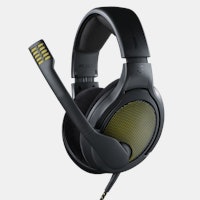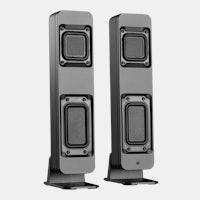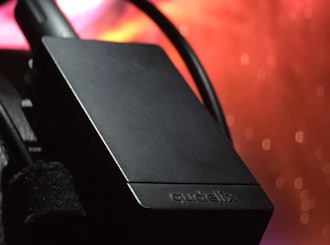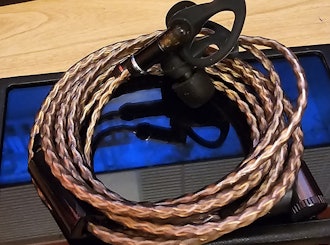Click to view our Accessibility Statement or contact us with accessibility-related questions

















Showing 1 of 32 conversations about:

Topping D90 MQA Version DAC

Asrei
126
Aug 19, 2020
I have both the D90 MQA and A90. They are breathtaking. If you need 32-bit/384,000 KHz there is a firmware update for it. Since mine didn’t support it when I got mine.
also an edit do your research on the MQA version. The USB chipset is far superior to the stock D90.
edit 2: The Elex pairs wonderfully with these.
(Edited)
verifonix
1181
Aug 20, 2020
Asrei"The USB chipset is far superior to the stock D90."
Isn't that just to allow decoding of MQA? Other than that there should be zero difference

DamienR
167
Aug 23, 2020
verifonixTo sound yeah Zero difference, at least as far as i can tell from comparing my D90 to my friends D90MQA, The Gustard A18 & A22 sound a bit different & both use the same D90(non MQA) Xmos, A22 sounds the best out of all the units I tried so with the AKM4499 Chip, There is a A22 MQA version coming I assume will also use the Xmos XU216 (D90MQA). Because performance it can literally do twice as much processing (decoding MQA). So the statement is correct & you are correct.

A community member
Aug 26, 2020
verifonixI could be very wrong on this so take this with a grain of salt. I use a schiit eitr in my setup which is a usb to spdif convertor. It's schiits gen 5 usb. I find it to make a noticeable difference. Much smoother, more natural, etc... I know a lot about tech. Even my engineer cousins come to me about tech so from a tech perspective I don't see why different specs, architecture, etc wouldn't make a difference and as stated above my personal experience seems to agree with that opinion as well. I ordered my topping d90 on a different site with the mqa not because I use MQA but because I'd rather have a more powerful processing component(from what I read xmos216 is a big increase over 208). When spending this kind of money I'd pay the little extra and get the better usb
verifonix
1181
Aug 26, 2020
But why would you need the processing power? Audio doesn't need a lot of processing, or do you listen do DSD512/DSD1024 lol
(Edited)

A community member
Aug 27, 2020
verifonixNormally in tech the more processing power you have the effortless it can be. For example 2 computers running different specs. The one feels snappier to use. That kind of thing. It's not always necessary but it doesn't hurt to have

The_Jniac
322
Oct 7, 2020
Except in this case we are already at the limits of human perception, so a more accurate analogy would be to claim that a monitor that can faithfully reproduce not just the visible spectrum but also ultraviolet and infrared is somehow beneficial.

The_Jniac
322
Oct 7, 2020
Knowing about technology is only part of the equation. You also need to understand the realities of human perception which, from your comments, you do not. Here is a very brief crash course
1) Thresholds of Perception
Humans, like all other animals, have a minimum intensity a stimulus much reach in order to be detected. While factors such as attention or neural attenuation (basically "getting used" to something, such as the feeling of your clothes or the sound of your own breathing. The brain automatically filters out these stimuli because they are not changing and you are not actively paying attention to them) can increase or decrease the threshold, there is an absolute minimum below which no stimuli can be detected. For example, you cannot hear the sound of bugs crawling around inside your house, or the heartbeat of the person sitting across from you.
2) The Nature of the Human Perceptual System
The human perceptual system is, in the simplest possible terms, a difference detection system. That is why nobody in the library stares at you for the sound of you turning the pages of a book, but everybody snaps to attention and stares at the janitor when they accidentally knock over a chair. The sound of rustling pages in a library is normal, and as such, the brain does not pay attention to it because attention is a finite resource that would be wasted on stimuli that carry no information. On the other hand, the noise made by the janitor is not normal, and as such, the brain pays attention to it because it might provide useful information. A more audio related example is how the differences between speakers or headphones can be amplified: if you are used to listening to a bright pair of speakers, then demo a warm pair of speakers, they will sound much warmer than if you were used to the sound of very neutral speakers. This amplified difference can then go on to produce inaccurate comparisons; I will discuss this later in a section about memory. A good example of the change sensitivity of the human auditory system is also one that frequently makes AB comparisons worthless: most people can detect a volume difference of 1dB to 0.5dB and tell that the volume changed, but when comparing two pieces of gear that have a slight volume difference, even as little as 0.25dB, the volume difference cannot be identified as such and instead, the slightly louder piece of gear will sound better. This slight difference can also serve as an active placebo, which will be discussed later.
3) Masking
A strong stimulus can drown out a weaker one, resulting in the weaker stimulus not being perceived at all. For example, if you are on a hike in the forest at night, your eyes will very easily pick up even very faint light sources, like a lit cigarette. However, if someone is shining a bright flashlight in your eyes, you will not be able to see the lit cigarette anymore. The same principle applies to audio: a loud sound can make quieter sounds impossible to perceive. Remember what I said above about thresholds of perception? This is a related topic, and a very important one for audio gear because while some things can theoretically be audible under certain conditions, in real-world listening conditions, they are not audible.
4) Perceptual Processing in the Brain
Despite what people commonly believe, sensory pathways in the brain are not unidirectional. Not only does information from the senses move from lower processing levels to higher ones, there is also information going back from higher processing levels to lower ones. A consequence of this is that what we think we perceive is not necessarily what our senses are actually sensing. For example, if you are watching a ballet and are paying close attention to one dancer, you will almost certainly fail to perceive what other dancers are doing. However, the brain's ability to interact with perceptions goes even further: the brain can quite literally alter a perception in order to have that perception match what it "should" be. For example, a study of wine experts found that if highly-rated wines were put into bottles with gross sounding names on the labels, the experts found the wines to be markedly inferior to identical wine poured from its original bottle. As another example, recording engineers have been known to make adjustments to the EQ on their consoles and immediately hear the difference, despite the consoles not actually being turned on. I have even personally seen a friend and lifelong musician with perfect pitch, who as such would be expected to have hearing that is about as good as a human can get, fall for a false perception. She was testing a guitar amplifier and, not quite satisfied with the sound, made a couple of adjustments to the EQ which resolved her complaints quite nicely until I pointed out that she had adjusted the controls for the channel that she was not using. Another good example was a youtube comment that claimed that glass Toslink cables sounded different from plastic ones. While this is obviously impossible for multiple reasons, what is particularly noteworthy is what he claimed the differences were: the glass cable was brighter and cleaner, while the plastic cable was softer and warmer. His brain had altered his perceptions in such a way that physical characteristics of the materials caused the sound to take on similarly named but otherwise completely unrelated characteristics.
5) Perceptual Memory
As I have explained above, humans do not perceive everything that their senses could theoretically detect, and the things that they do perceive are frequently perceived inaccurately. Adding yet another layer of imprecision is the fact that human memory is not perfect either. Not only that, but every time that a memory is recalled, it can be altered, so even if the initial memory is accurate, later recalls may ruin that accuracy. Additionally, the inaccuracy of our senses can interact with our memory to produce some interesting failures. Remember the above example of how a warm pair of speakers will sound even warmer if you are used to listening to a bright pair of speakers? Well, if you later get a pair of neutral speakers and become accustomed to their sound, and then listen to another pair of warm speakers that are the sonically the same as the previous pair of warm speakers, your memory of the exaggerated difference between the original warm speakers and your bright ones will make you think that the new pair warm speakers are actually more neutral than the original ones were, despite them being sonically the same. Not only that, but your recall of the warmth of the original pair may cause you to misremember them as being even warmer than they were, because as mentioned before, a memory becomes vulnerable to alteration whenever it is recalled.
6) Conclusions
Human perception is a complicated, and still not very well understood, field. While much remains unknown, what is known and is highly relevant to audio nerds is that there are absolute limits to human perception beyond which we will not be able to perceive under any circumstances until we either develop cyborg mega ears or evolve better ears, and that the brain has a staggering amount of power to alter what we perceive, including making us perceive something that was not actually there and making us fail to perceive something that we should have been able to perceive quite easily. It has been the case for quite a while that audio technology was able to be transparent beyond the limits of perception in normal listening conditions, and modern high performance gear has gone even further and reached levels of fidelity that are audibly transparent beyond the limits of human hearing in even the best possible conditions for detecting the imperfections in the reproduction of audio gear. In short, the question with audio gear is not just "does it make a difference?" but also "if it does make a difference, is that difference audible?"

A community member
Oct 7, 2020
The_JniacI'm not arguing my man or lady. Have a good day
Enomys
1
Oct 12, 2020
The_JniacBest comment I've read on this site, a pleasure! And yes, you are right.
PRODUCTS YOU MAY LIKE
Trending Posts in Audiophile

Simthaniel
Rigs
Modded headphones with qudelix at the core
When I received the Qudelix 5K, I had already modified a pair of Superlux HD-681 headphones. I previously soldered my own balanced connections to the drivers, providing multiple ways to connect and...
Apr 14, 2024

brothamike
A decent set of IEMs
I am in the midst of a 300 hour burn-in but, I will say I am enjoying how this set sounds so far. Before I received these which was btw late by a few weeks, I purchased a Sony/Kimber Kable MMCX...
Apr 12, 2024
merrick97
Should I exchange the PC38X for better headphones?
I bought the PC38X headphones FOR GAMING and they are great, but I have NO use for a Microphone since I don't do competitive gaming and I was wondering if there were better headphone options at a similar price without a headphone, where (presumably) more of the cost was put into making it sound better. I also find that my PC38X don't get quite as loud as I would like and I was wondering if a cheap amp like the iFi Go link would draw a little more volume out of my phones. https://www.amazon.com/dp/B0BN6MM822?psc=1&ref=ppx_yo2ov_dt_b_product_details I went with the PC38X since it was considered the best bang for buck headphones. I care most about using spatial apps like DOlby Atmos and DTS Headphone:X. Suggestions are welcome.
Apr 11, 2024

LostnAmerica
Sound Signature of the Grell Project.
Wondering what type of sound signature the Drop Grell project headphones will have or trying to attain. Any update would be appreciated.
Apr 8, 2024

Fabulous
Looking for a gaming/content audio setup
Hello! I'm looking for recommendations on audio setups. I'd be planning on using it mostly for gaming. Preferably I'd like a pair of large closed back headphones since I have a big head and jaw. I'd also like to hear myself through my mic with mic monitoring. As far as budget goes, I don't really have one. But under 600$ would be nice. I can go higher if needed. The audio setup would be connected to a high performance PC. Thank you in advance for any recommendations!
Apr 4, 2024

1plsd
$10 Drop Coupon Email not sent?
Trying to buy some gear off Drop for the first time. I was told I would receive an email with a welcome to drop $10 off promo. I never received that email. Drop was able to send me emails for my login token and email for Password update. But for some reason the $10 off coupon was never sent to me.
Mar 31, 2024

NMPacella
New here
Hello, I just joined, primarily for the audiophile products. Looking at purchasing the NHT C3 speakers for our new living room. Space is about 15 feet wide by 33 long and they will fire long ways. Space is just for general listening, music room with all equipment is downstairs, so hoping they will fill it with sound nicely. Cheers.
Mar 18, 2024
